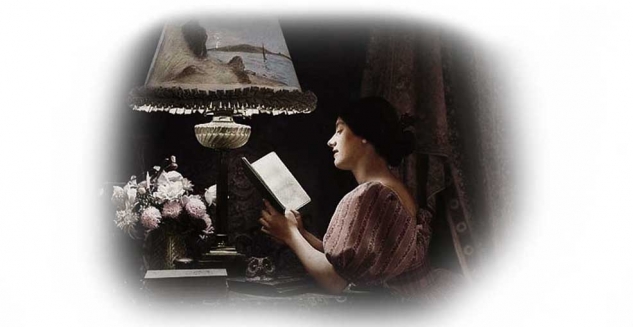Twentieth Century Writers
Twentieth Century Writers Film Clips  Literary critic Philip Guedallia (1889 – 1944) reluctantly concluded that the contributions of Rudyard Kipling (1865 - 1936) to the world of letters were genuine - and, no matter what you think of him, his writing will be around for a good while.
"He sharpened the English language to a knife-edge, and with it he has cut brilliant patterns on the surface of our prose literature."
The author of "The White Man's Burden " gets the back-hand for all of his narrow-minded jingoism by Robert Wilson Lynd (1879 - 1949), who penned this angry review of Rudyard Kipling's (1865 - 1936) body of work, finding the author to be too much the Victorian imperialist. " gets the back-hand for all of his narrow-minded jingoism by Robert Wilson Lynd (1879 - 1949), who penned this angry review of Rudyard Kipling's (1865 - 1936) body of work, finding the author to be too much the Victorian imperialist.
An article about the Muslim opinion concerning colonialism can be read here...
H.L. Mencken's (1880 - 1956) short review of Joseph Conrad's (1882 - 1941) collection of essays, entitled Notes on Life and Letters . The book contained Conrad's thoughts on such subjects as the sinking of 'Titanic' to the writings of Henry James, Guy de Maupassant, Daudet and Ivan Turgenev were all touched upon in this collection of essays. Hugh Walpole (1884-1941) interviewed his much admired friend, Joseph Conrad (1884-1941) for the pages of a fashionable American magazine and came away this very intimate and warm column:
"There is a mystery first of the man himself-- the mystery that the son of a Polish nobleman should run away to sea, learn English from old files of the 'Standard' newspapers when he was thirty, toss about the world as an English seaman, finally share with Thomas Hardy the title of the greatest living English novelist--- what kind of man can this be?" James Joyce (1882 - 1941) refers to many different subjects in this 1922 interview, among them was Ulysses, his recently released book. The interview was written by Djuna Barnes (1892 - 1982); avant-garde writer, illustrator and playwright.
The 1922 New York Times review of Ulysses can be read here...
"Hundreds of thousands of people regard me, I believe, as something of a success: A well-dressed, well-fed young writer, famous for his ties, who has moved upward and forward in the world of letters with a speed veering on the imperceptible; an Oriental whose name has become a word in the English language."
SAROYAN, n., one with money, a gentleman, a scholar, an artist; v., to slay, butcher, club, strafe, bombard, or cause to spin; adj., pleasing, ill-mannered, gallant; prep., near-by, within, over, under, toward.
"What, however, is the inside story? What is the truth? Who is the real Saroyan? Is he a success or a failure? I will go over the entire saga from there to here chronologically..."
Click here to read a Saroyan book review.
|
MORE ARTICLES >>> PAGE: * 1 * 2 * 3 * 4 * 5 * 6 * 7 * 8 * 9 * 10 * |
|